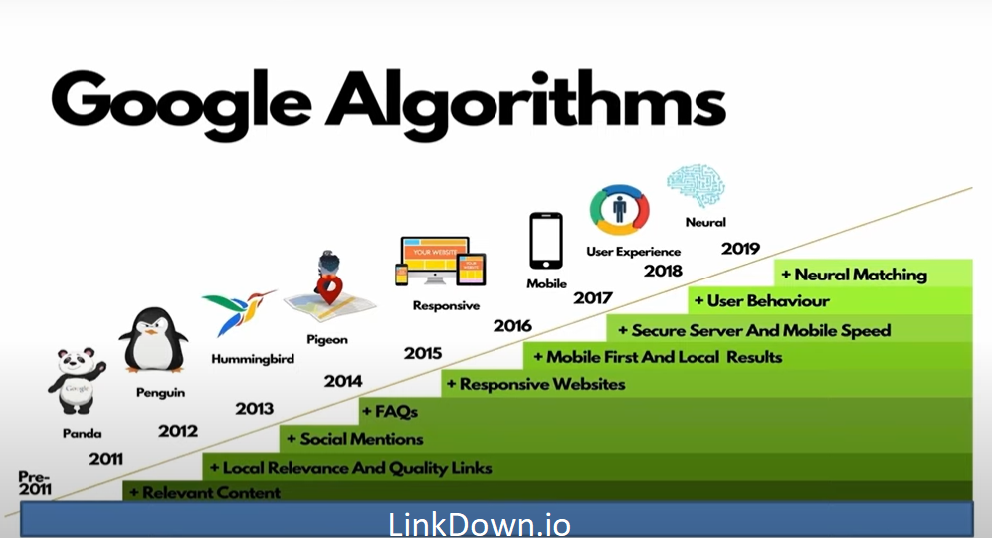In the vast digital landscape, where businesses strive to gain visibility and reach their target audience, Google has emerged as the go-to search engine for users worldwide. With billions of searches conducted every day, appearing on the first page of Google’s search results has become a coveted goal for website owners and marketers. However, achieving a high ranking on Google is no easy feat, as it involves understanding and optimizing various ranking factors that influence search engine results. In this article, we will explore the key Google ranking factors and provide insights into how you can enhance your online presence.
Content Quality and Relevance
Content reigns supreme in Google’s ranking algorithm. The search engine prioritizes websites that offer high-quality, informative, and engaging content. To optimize your site’s content, focus on creating original, well-researched articles, blog posts, and other relevant content that resonates with your target audience. Incorporate keywords naturally and avoid keyword stuffing, as Google penalizes websites for such practices.
Backlinks and Link Quality
Backlinks, or incoming links from other websites, play a crucial role in Google’s evaluation of a website’s authority and relevance. The number and quality of backlinks pointing to your site influence its ranking. Aim to acquire backlinks from reputable and authoritative websites in your industry. High-quality backlinks indicate to Google that your content is valuable and trustworthy, boosting your chances of ranking higher.
Social Mentions
Social media presence and activity play a significant role in determining a website’s ranking on Google. As one of the most popular search engines, Google recognizes the influence of social signals in evaluating a website’s credibility and relevance. The level of engagement and interaction a website generates on social media platforms can positively impact its search engine ranking. When users share, comment, like, and promote content from a website on social media, it indicates that the content is valuable and trustworthy.
Frequently Asked Questions (FAQs)
FAQs have become an essential component in improving a website’s ranking on Google. Search engines, including Google, value websites that provide valuable and relevant information to users. FAQs serve as a valuable resource by addressing common queries and concerns that users may have about a particular topic or product. When websites incorporate a well-structured FAQ section, it enhances the user experience and demonstrates the site’s expertise and authority in its niche. Moreover, FAQs help search engines understand the content better and can result in featured snippets or rich results in search engine results pages (SERPs).
Mobile-Friendliness and Responsiveness
As mobile usage continues to rise, Google has shifted to a mobile-first indexing approach, meaning it primarily considers the mobile version of a website for ranking. Ensuring your website is mobile-friendly and responsive is crucial for achieving a favorable ranking. Optimize your site’s design, layout, and loading speed for mobile devices to provide a seamless user experience and improve your chances of ranking higher.
Page Loading Speed
In today’s fast-paced digital world, users expect websites to load quickly. Google recognizes this and rewards websites that deliver a swift and efficient user experience. Slow-loading websites not only frustrate users but also receive lower rankings. Optimize your website’s loading speed by compressing images, minifying code, and leveraging caching techniques to provide a snappy browsing experience.
User Experience and Engagement
Google strives to present the most relevant and user-friendly websites to its users. User experience (UX) metrics, such as time on page, bounce rate, and click-through rate, are important ranking factors. Enhance your website’s UX by focusing on clear navigation, intuitive design, compelling headlines, and engaging multimedia elements. By keeping visitors engaged and satisfied, you increase the likelihood of higher rankings.
Secure and Accessible Website
Website security and accessibility are becoming increasingly important ranking factors. Google prioritizes websites that provide a safe browsing experience by implementing HTTPS encryption and securing user data. Additionally, ensuring your website is accessible to users with disabilities through proper structuring and adherence to accessibility guidelines can positively impact your rankings.
Neural Matching
Neural matching is a crucial factor in Google’s ranking algorithm that aims to deliver more relevant search results to users. It is an advanced technology that helps Google understand the meaning behind search queries and match them with relevant web pages, even if the exact keywords are not present in the content. Neural matching utilizes deep learning techniques to interpret search intent by analyzing various factors such as context, synonyms, and user behavior patterns. This allows Google to provide more accurate and comprehensive search results, improving the overall search experience.
Conclusion
Understanding and optimizing Google ranking factors is essential for improving your website’s visibility and driving organic traffic. By focusing on content quality, backlinks, mobile-friendliness, page loading speed, user experience, security, and domain authority, you can enhance your chances of ranking higher in Google’s search results. Remember that SEO is an ongoing process, and staying informed about the latest trends and updates is crucial to maintain a competitive edge in the digital realm.


